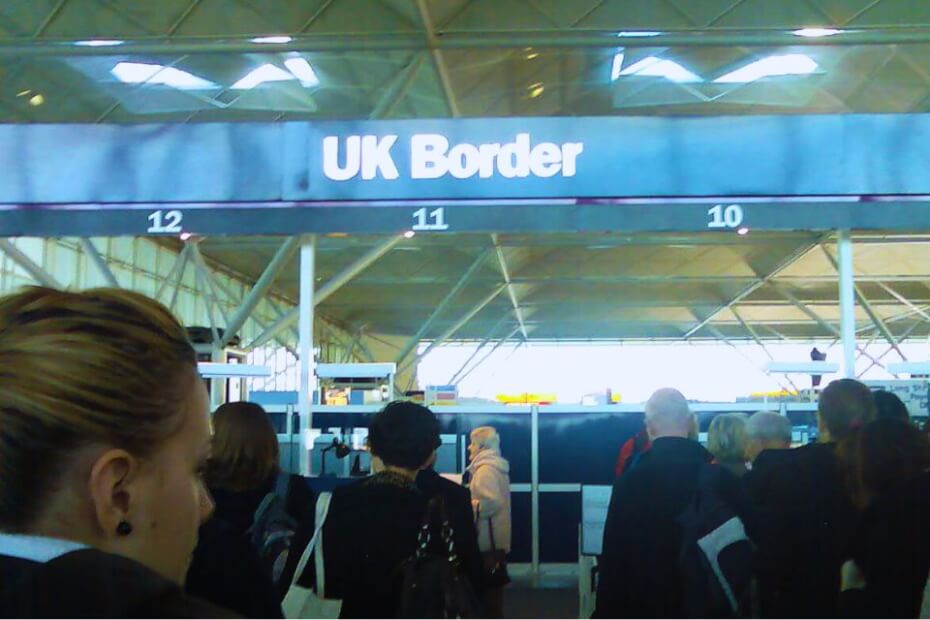
The United Kingdom (UK) government has tightened border control for European Union (EU) citizens and their families under the EU Settlement Scheme (EUSS).
It also applies to Iceland, Norway, Lichtenstein, and Switzerland citizens and their families under the EUSS.
Effective 15 July 2024, the UK Border Force has been given new responsibilities and powers over EUSS pre-settled status holders.
The updated guidance, published in September 2024, instructs border officers to assess if individuals with pre-settled status still meet the criteria that initially granted their status.
This primarily means inspecting to ensure that pre-settled individuals have maintained continuous residence in the UK.
It also means checking if they continue to meet other alternative eligibility requirements under the EUSS.
The new rules state that those who fail to meet the EUSS pre-settled conditions may have their status revoked at the border.
While this gives border officers more power, the updated guidance emphasizes the importance of using this power fairly.
UK Border Force and pre-settled status holders
The changes affect the European Economic Area (EEA), Swiss citizens, and their families who had moved to the UK before the end of the Brexit transition period on 31 December 2020.
The EEA comprises nationals of all the EU Member States and citizens of Iceland, Norway, and Lichtenstein.
Under the EUSS, EEA and Swiss nationals who moved to the UK before the Brexit transition period ended could apply for either settled or pre-settled status.
Those who qualify for settled status obtain permanent rights to live, work, and access public services in the UK.
Pre-settled status is granted to those who have lived in the UK for less than five years. It grants them limited rights to stay, work, and access services in the UK for five years.
Once they complete five years of residency, they can apply for settled status, granting them permanent residency.
In September 2023, individuals with pre-settled status who are nearing the end of their five-year period will have their status automatically extended by two years.
This automatic extension will apply regardless of whether or not they have applied for settled status.
In May 2024, the Home Office revised the policy, giving pre-settled status holders an extension of five years instead of only two.
The change ensures that individuals in the UK won’t lose their rights if they fail to apply for or upgrade to settled status.
Grounds for canceling pre-settled status at the border

Many EEA and Swiss nationals still hold pre-settled status and must continue to meet the conditions initially granting them their status.
Those who fail to meet the conditions may find themselves ineligible for re-entry into the UK.
Under the new guidance, the Border Force may cancel an individual’s pre-settled status due to the following:
Failure to maintain continuous residence in the UK
If a person has not continuously resided in the UK or the Crown Dependencies (Guernsey, Jersey, and the Isle of Man) for at least six months in a 12-month period, they may lose their status.
This affects those without valid reasons to be outside the UK, such as military service or childbirth.
Changes in family relationships
If a person’s marriage or civil partnership, which initially qualified them for pre-status, ends in divorce, they could lose their status.
They could only keep their status if they meet other eligibility criteria that allow them to retain it.
Loss of derivative or Zambrano residence rights
Individuals who no longer fit the definition of a person “with a derivative” or “a “with a Zambrano” right to reside may face pre-settled status cancellation.
Although the new rules grant Border Force officers significant power, the guidance also stresses the importance of proportionality.
Border officers are encouraged to consider each individual’s circumstances when deciding whether to revoke pre-settled status.
This means looking at the reasons for an individual’s non-compliance and whether they could still qualify for another type of leave under the scheme.
For instance, officers must check digital immigration records to confirm if a pre-settled status holder has had their status automatically extended.
The automatic extension means they still have the right to live and work in the UK under the Withdrawal Agreement.
Border Force officers must ensure that individuals are fully ineligible before revoking their status.
Concerns about fairness and rights protection
The intensified border checks and potential cancellation of pre-settled status have raised concerns among advocates for European residents in the UK.
They argue that the changes can disproportionately affect long-term UK residents who may struggle to navigate complex immigration rules.
Some said the new rules, despite the guidance provided, could cause confusion and uncertainty for those with pre-settled status.
This is also due to the complexity of the eligibility conditions for maintaining pre-status, which can be complex.
For instance, some individuals may not be aware of the requirement for continuous residence. Others may also face barriers when proving their residence in the UK.
There are provisions to appeal for those who find themselves ineligible for re-entry due to failing to meet the requirements.
Individuals whose status has been revoked or whose re-entry has been denied can appeal the decision within 28 days of the rejection.
The Independent Monitoring Authority (IMA), which oversees citizens’ rights post-Brexit, continues to collaborate with the Home Office to prevent unfair penalties.
The IMA has expressed concerns about the clarity of specific processes, leading the government to prioritize transparent immigration status checks.
What border force and pre-settled status holders should expect moving forward

With new powers and responsibilities, the Border Force officers must stay updated with the latest rules.
Since EUSS status holders are digital-only, they must efficiently use digital tools to verify an individual’s status at the border.
The new guidelines give Border Force officers the power to enforce immigration rules.
However, they are also responsible for ensuring that citizens’ rights under the EUSS are respected.
This is important as the government balances the protection of individual rights with the need to maintain robust border controls.
Pre-settled status are urged to stay informed about the new policies to protect their rights.
They must ensure compliance with the residency requirements to avoid issues at the border and avoid losing their right to remain in the UK.

